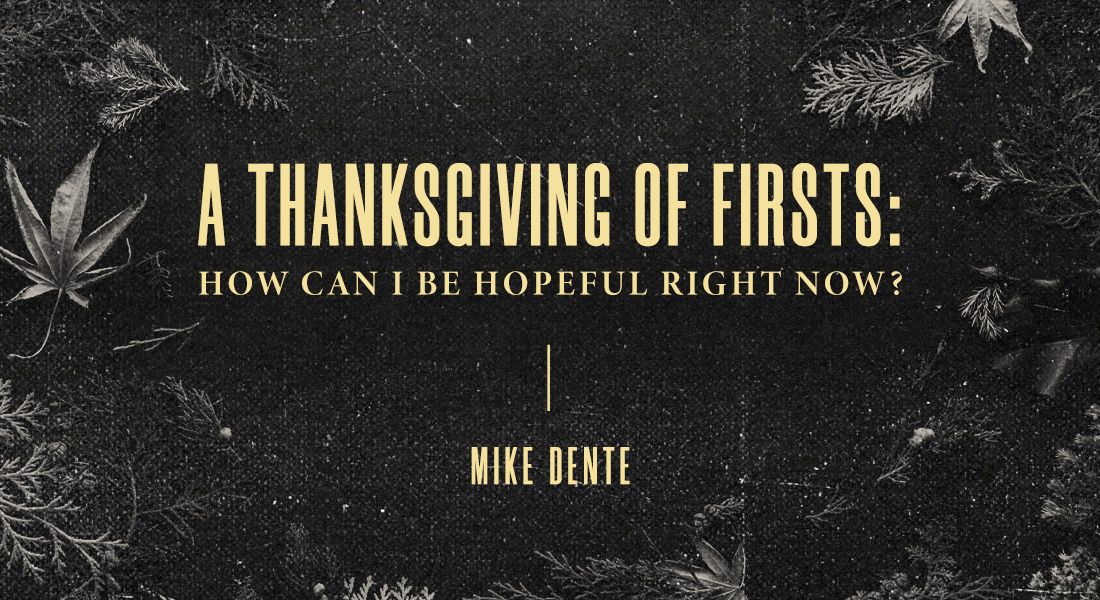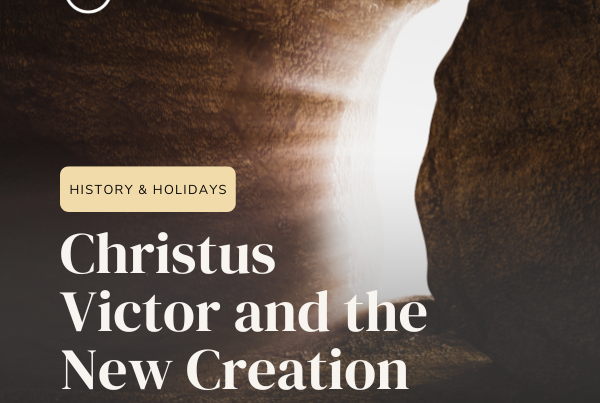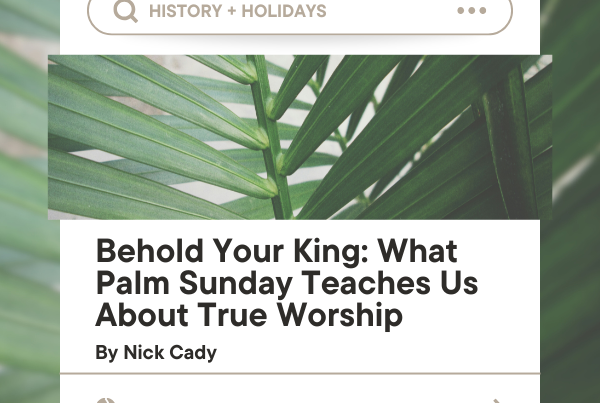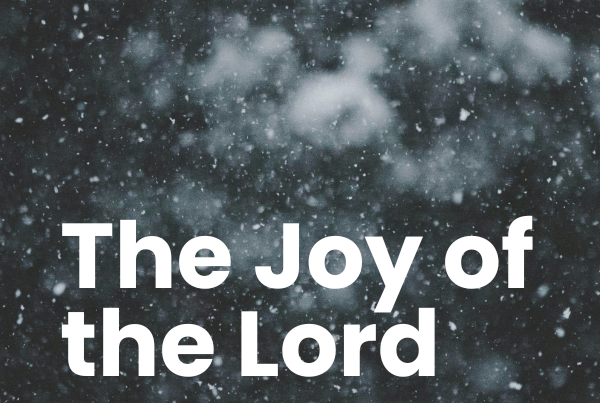
When my wife and I set off to serve at Calvary Chapel Nice back in May 1997, we carried most of what we owned in a few overstuffed suitcases halfway across the world. Those were the glory days of lenient baggage allowances and quick access to departure gates. In one of our suitcases, too heavy to lug up a staircase by myself, was a book I still keep and flip through from time to time—The Light and the Glory by Peter Marshall and David Manuel. Its premise, Did God have a plan for America?, is still of great interest, but what feeds my soul over the years is the historical accounts of hope, suffering and the first Thanksgiving.
In their account of the first Thanksgiving, Marshall and Manuel wrote that the Pilgrims wanted to celebrate all God had done for them and invite their native hosts to a feast in honor of the Great Provider. “Massasoit1 was invited and unexpectedly arrived a day early—with ninety…counting their numbers, the Pilgrim’s had to pray hard from giving in to despair.”2
We can only imagine the anxiousness they felt as this army of unexpected guests entered their settlement. Hospitality is a blessed exercise of grace because as we plan to reach out, we may find ourselves completely overwhelmed by the need (John 6:5). But that’s when the Lord provides beyond what we think we need in those special moments of our faith being tested. God used the Natives to feed their English hosts. “Massasoit had commanded the braves to hunt for the occasion. They arrived with no less than five dressed deer and more than a dozen fat wild turkeys!” Experiencing this kind of miraculous provision changes a soul. It brings us to prayer and deep thankfulness as it did for the New England Colony.
“Surely one moment stood out in the Pilgrim’s memory—William Brewster’s prayer as they began the festival. They had so much for which to thank God: for providing all their needs, even when their faith had not been up to believing that He would do so; for the lives of the departed and for taking them home to be with Him.”3
The first year was a calamitous one. Many dear friends perished before they arrived in the New World. The year that followed produced more hardships than anticipated, dwindling the number of survivors every month. If they were to welcome even five more guests than planned to their Thanksgiving feast, it would have been a step of faith. Yet God gave them the grace to rejoice and experience His love in a new way.
I remember our first Thanksgiving in a foreign land, our generous hosts in Nice and the overwhelming gratefulness for all the Lord had brought us through. It was an evening that overcame the feeling of uncertainty we carried in facing a new year. Yet in our lives, we’ve seen time and time again how faithful the Lord is. It reminds me of another story just one year later as the new colony in Plymouth survived another year in the New World and called for a second feast of Thanksgiving. This time, they began a little differently, a solemn moment of remembrance as set before each one was “an empty plate in front of each person were five kernels of corn.”4 Remembering the penury they endured and the divine deliverance they experienced led them into a more profound celebration.
It’s technically not necessary to experience hardship to be thankful.
God tells us to give thanks (Psalm 50:14; Ephesians 5:20), and we know that He through His Spirit gives us what we need to obey (Philippians 2:13). Still, some people seem to be naturally inclined to thankfulness and yet others, swimming in blessing, only see the negative. How does this work? This is a question of the heart. One can experience the goodness of God, know He will provide based on all they have experienced and read, but still, through sin or doubt, give in to a grumbling spirit. This happened to the children of Israel in the desert (Numbers 17:6-14) and is part of the temptations that are common to all (1 Corinthians 10:13).
We would hope the Pilgrims would have kept the unity of the Spirit and continued in thankfulness as God increased their provision. Oddly enough, by November of their second year in Plymouth, a controversy had so divided the unity that had once given birth to our Thanksgiving Holiday, that Robert Cushman found it necessary to preach on the “Sin and Danger of Self-love.”5 Oh, the pastoral love and daring of the Puritans! What a good reminder of our humanity and constant need of grace, which leads to true gratefulness.
Over 20 years have passed since my wife and I celebrated our first Thanksgiving on the Old Continent, and it’s one of my family’s favorites. Not just my immediate family, but our church family asks us every year if we can do it again. We can’t all meet on Thursday; most people work until 7 or 8 pm and it’s not a day one can ask off from work. Our tradition is a church meal after service. We clean our meeting hall and dress a huge table in the middle. Everyone brings something. It doesn’t look like your traditional American Thanksgiving meal because people come from all over the globe and bring food from their countries. But all who come thank God for His Providence.
We begin with a passage of Scripture, a short devotional message and sometimes take communion. Then we eat together, laugh and spend a moment publicly thanking the Lord for all He’s done. Around the table are people from every social class. There have been years when the homeless have come to celebrate with us. Generally, we have someone from every continent or at least from places I didn’t know existed before I moved to France. We sit and eat as a family, united in our Savior’s grace, and for a moment we share in the communion of the thankful. Over the years, I’ve learned that many churches all over France do this too. It’s not a new tradition, but it’s bringing together something the born again French love most: good food and fellowship to the glory of God.
Psalm 136:1 says:
“Give thanks to the LORD, for he is good, for his steadfast love endures forever.” There is no better way to spend this Thanksgiving, or for that matter, the rest of the year, than to allow this Word to fill our hearts and lead our minds to remember all the good the Lord has done for us.
Notes:
1 The Pauquunaukit Wampanoag leader who sought an alliance with the colonies of New England and was able to maintain peace throughout his lifetime.
2 Peter Marshall and David Manuel, The Light and the Glory, Fleming Revel publications, 1977. 137-144.
3 Idem.
4 Idem.
5 Idem.









